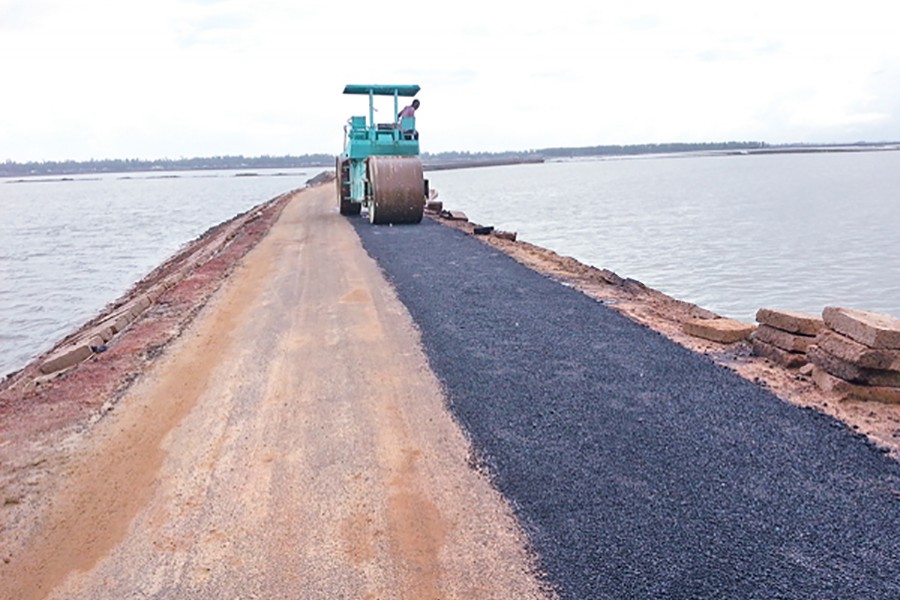The government is in a hurry to get rural infrastructure development projects involving substantial volume of funds approved by the Planning Commission (PC) before the forthcoming national elections, officials said on Saturday.
They said the Local Government and Engineering Department (LGED) alone has sought approval for nine projects meant to construct rural roads and bridges, where billions will be required.
"All the projects have been sent to us within the last couple of weeks for approval. Now we're coming under pressure to approve those on an emergency basis," a PC official said.
Within a day or two from the date of sending the projects from the ministry to the commission, some government ministers, lawmakers and political heavyweights are putting pressure on the commission for the approval, the official said.
Development analysts say since the national election is round the corner, the ruling party is taking up projects in a hurry out of political consideration.
According to the ministry of local government, rural development and cooperative, it has sent at least nine rural infrastructure development projects within last couple of weeks to the commission.
"Since the lawmakers have pledged their voters to develop roads, bridges, culverts and other infrastructure in their constituencies, they are putting pressure on us to approve projects before the elections," said a ministry official.
"We're trying to prepare the projects, which are necessary and are sending those to the commission for getting approval," he said preferring anonymity.
"We have even been forced to hold Project Evaluation Committee (PEC) meeting within two days from the appraisal of a project of the LGED. We are getting so much pressure on that we are not able to scrutinise properly rather to place it before the next ECNEC meeting," he said.
During the last few weeks, the LGED sent Mymensingh rural infrastructure development project worth Tk 6.0 billion, rural transport improvement project involving an investment of Tk 45 billion, and construction of below 100-metre long bridges across the country project at a cost of Tk 30 billion.
Besides, it has sought approval for rural employment and road maintenance programme project involving a sum of Tk 25 billion, rural infrastructure (road) development project Tk 50 billion, bridge building project in Feni district for Tk 5.50 billion, rural infrastructure for greater Cumilla project, and JICA-funded disaster risk management project.
Former finance and planning advisor to the Bangladesh's caretaker government Dr Mirza Azizul Islam said that most of the projects are politically-motivated.
"The ruling party lawmakers, who wish to contest the parliamentary elections, will be able to tell people that they are working for them."
"Taking up expensive projects with a shorter period of time will ultimately affect their execution. Once the cost and execution time will overrun and their viability will also be affected," he said.
Mr Islam said since the election is knocking at the door, there is also the possibility of diverting project funds to influence election.
Economist Dr MA Taslim told the FE such projects are usually designed to influence electorates.
"There are reason to assume that the government might have taken up some politically-motivated projects because those are being initiated just before the national election. The projects will neither be of quality nor viable."
He said in the name of development work, the funds could be misused, Prof Taslim expressed the fear.


